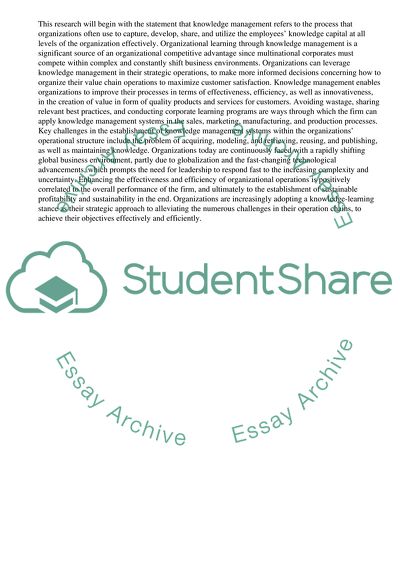Cite this document
(“The Concept of Knowledge Management Research Paper”, n.d.)
The Concept of Knowledge Management Research Paper. Retrieved from https://studentshare.org/business/1635438-knowledge-management
The Concept of Knowledge Management Research Paper. Retrieved from https://studentshare.org/business/1635438-knowledge-management
(The Concept of Knowledge Management Research Paper)
The Concept of Knowledge Management Research Paper. https://studentshare.org/business/1635438-knowledge-management.
The Concept of Knowledge Management Research Paper. https://studentshare.org/business/1635438-knowledge-management.
“The Concept of Knowledge Management Research Paper”, n.d. https://studentshare.org/business/1635438-knowledge-management.


